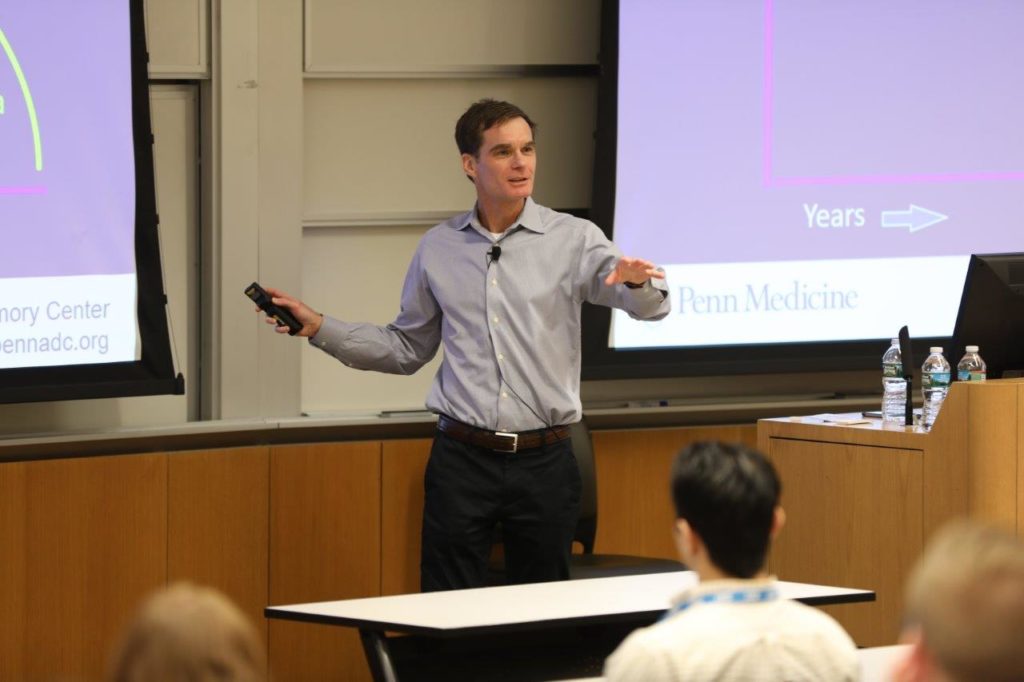By: Erin Alessandroni
As we age, it is common to occasionally have trouble finding words or experience a lapse in memory. The question is when those lapses become disruptive enough to indicate the need for a doctor’s assessment of our cognitive abilities.
To help individuals distinguish dementia from normal signs of aging, Penn Memory Center Co-Director Jason Karlawish, MD cites some common signs that often signify true cognitive decline in his latest article published by AARP.

Dr. Karlawish speaking on money management and cognitive decline at a recent Wharton School event. (Photo by SIFMA.)
Dr. Karlawish points to issues managing money, medications, technology, and transportation as typical early warning signs of dementia. He also notes that the underlying factors affecting these abilities can be complicated, as physical decline such as cataracts clouding vision or fatigued muscles inhibiting movement may be the source of what seems like cognitive issues.
Additional common signs of early cognitive decline include repeating stories, asking the same question several times, or forgetting the day of the week. These acts diverge from regular lapses in memory and may be reason enough to make a trip to the doctor.
Changes like these could be caused by either a form of dementia, Mild Cognitive Impairment, or cognitive aging. Dementia describes a measurable level of impairment caused by a disease such as Alzheimer’s disease where assistance to carry out daily tasks is required, while MCI patients have more mild symptoms but are still able to carry out key daily tasks. Cognitive aging describes even more subtle changes that affect many people over the age of 50 after the end of adult development.
Dr. Karlawish emphasizes the importance of enlisting a trusted network of individuals, such as family and friends, to watch over you and accompany you to visits to the doctor.
Those experiencing more than the average forgetfulness could be a part of the nearly 10 million new cases of dementia and Alzheimer’s disease that occur each year. For this reason, AARP recently announced the launch of a new campaign called “Disrupt Dementia,” aimed to drive new diagnostics and treatments for dementias while providing education and support for patients and their caregivers.
The centerpiece of AARP’s “Disrupt Dementia” campaign is a $60 million investment in the Dementia Discovery Fund (DDF), the first and largest venture fund focused on discovering and developing effective new drugs for treating dementia. With this campaign, AARP looks to come closer to a world where those 10 million people have greater access to new diagnostics, treatments, education, support, and hope.
For the full article, visit AARP.
